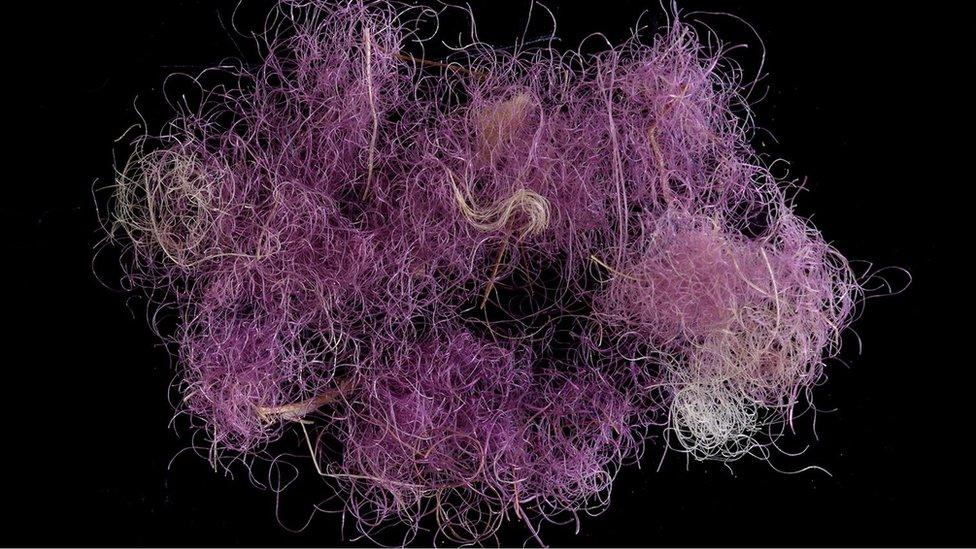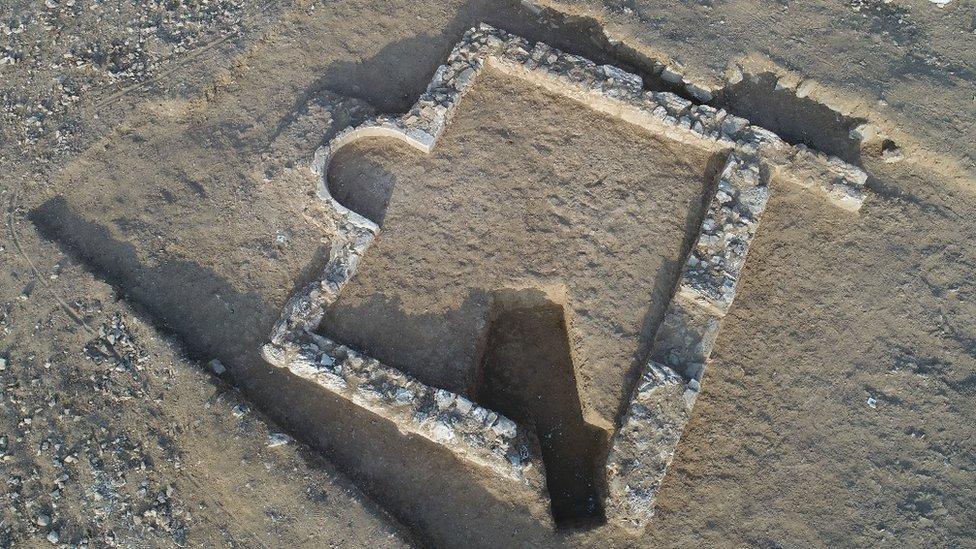Israeli archaeologists find 'Biblical royal purple dye'
- Published

The rare purple was said to be worn by prestigious figures such as King David, Solomon and Jesus
A purple dye dating back to the purported reign of the Biblical King David has been identified on a piece of fabric by Israeli archaeologists.
The dye is said to have been more valuable than gold and was associated with royalty.
It is the first time textile from that period with the colour has been found in the region.
Israel Antiquities Authority expert Dr Naama Sukenik called it a "very exciting and important discovery".
The fragment was unearthed during excavations at a site in Timna, about 220km (137 miles) south of Jerusalem.

The fabric was found at a site known as Slaves' Hill
"In antiquity, purple attire was associated with the nobility, with priests, and of course with royalty," said Dr Sukenik.
"The gorgeous shade of the purple, the fact that it does not fade, and the difficulty in producing the dye, which is found in minute quantities in the body of molluscs, all made it the most highly valued of the dyes, which often cost more than gold."
Purple is mentioned in the Jewish and Christian Bibles, including in garments worn by King David, King Solomon and Jesus.
The material containing the dye was found during a dig at a site known as Slaves' Hill.
"The colour immediately attracted our attention, but we found it hard to believe that we had found true purple from such an ancient period," said Prof Erez Ben-Yosef from Tel Aviv University's Archaeology Department.
Until now, the colour had been found on mollusc shells and fragments of pottery, but not on dyed fabrics.
Carbon-dating of the fragment found it came from about 1,000 BC, around the time when King David is said to have reigned, followed by his son, Solomon.
Related topics
- Published3 September 2020

- Published18 July 2019

- Published15 September 2018
